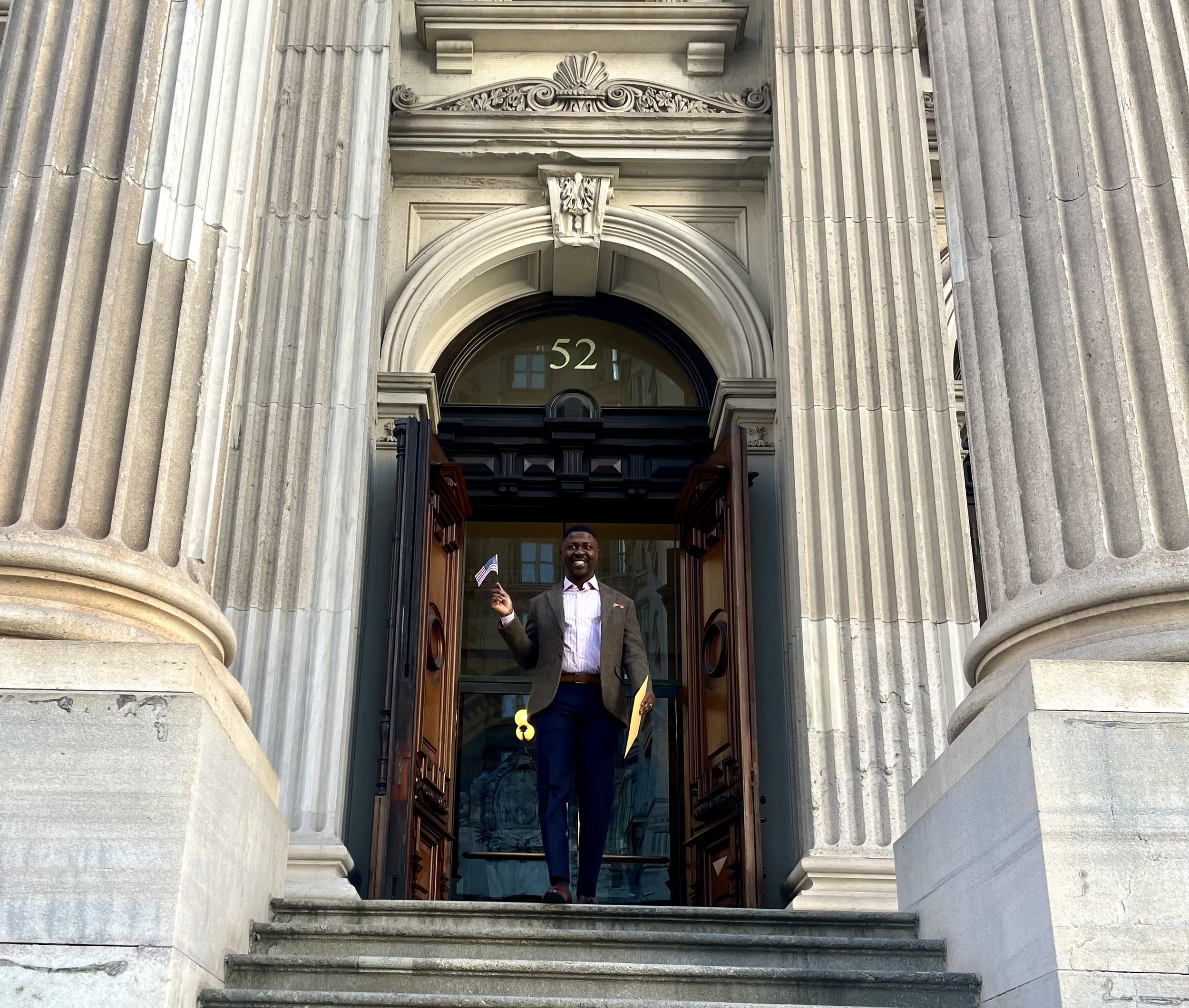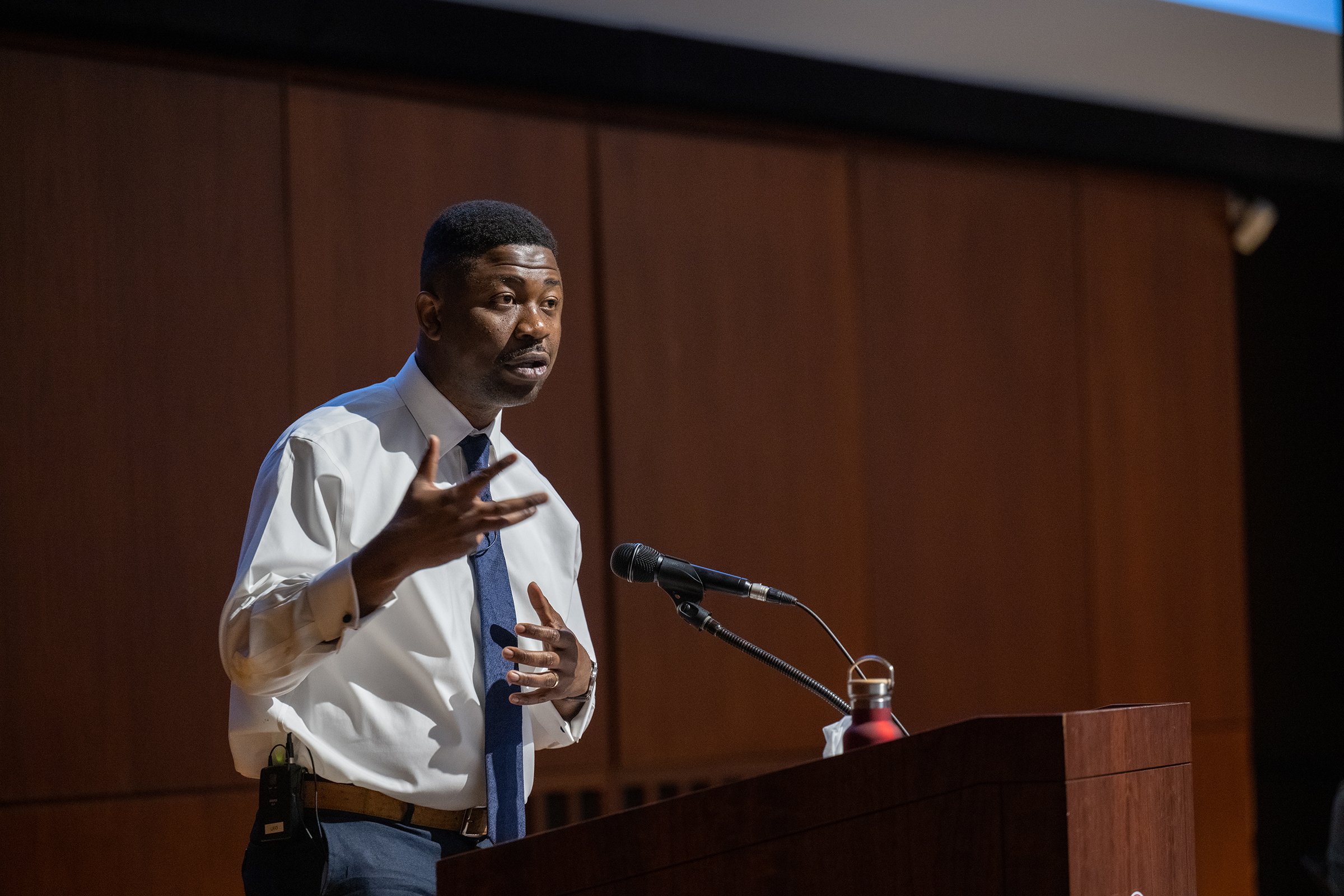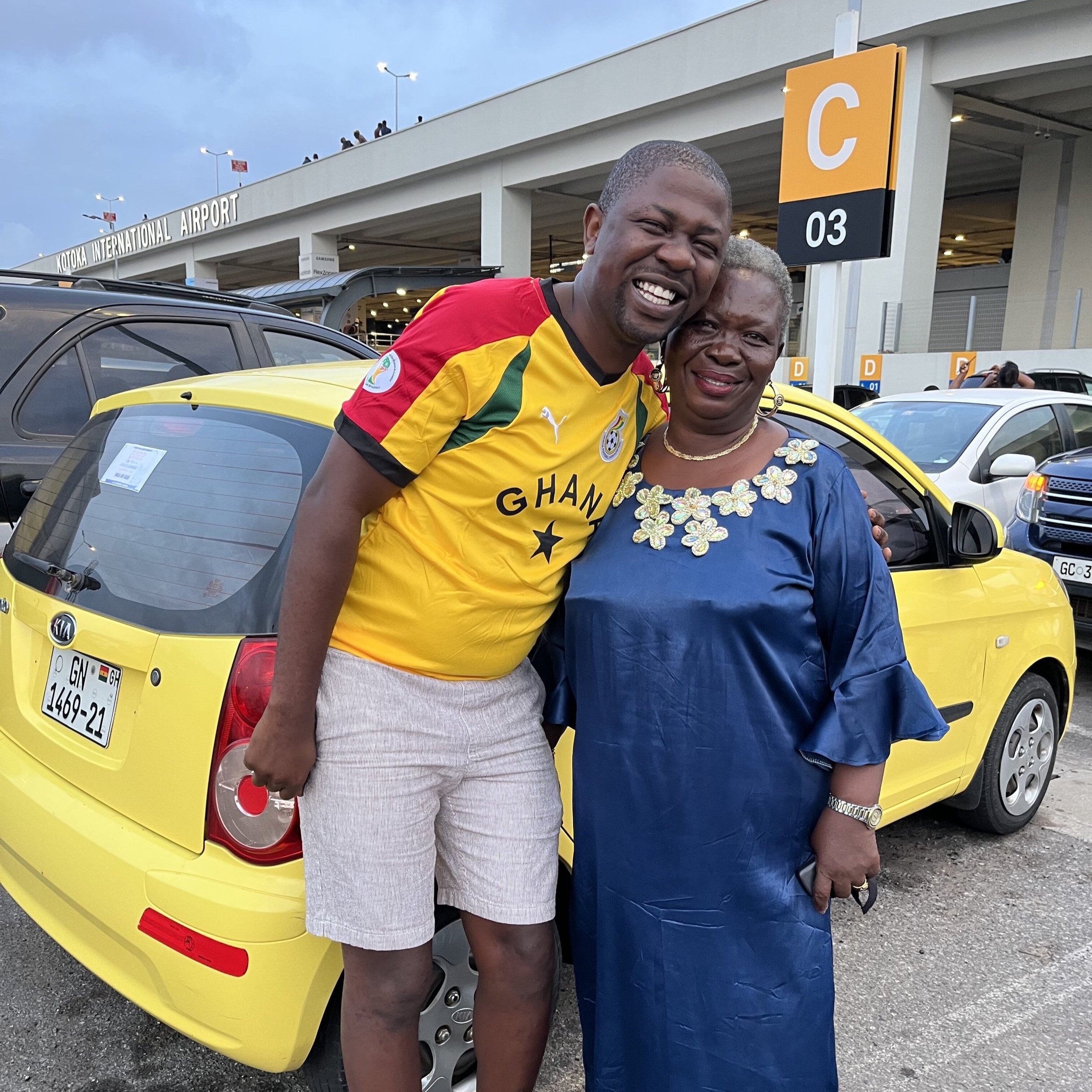As 2019 wound down, I had my GRE scores in hand and an application submitted to NYU for a master’s in human resources. The prospects for 2020 seemed promising. I set my sights on getting into NYU and wrapping up my studies by May 2022. The blueprint was simple, the goal achievable—nothing colossal enough to engulf me entirely.
Frankly, I was content with where I stood in life, unfazed by the absence of an all-consuming ambition.
I tossed my hat into the ring for a couple of awards and looked ahead to a splendid year alongside my boyfriend, Nicholas. Come February 2020, we embarked on a birthday getaway to Costa Rica—a bewitching extended weekend. We returned to the biting cold of a New York winter, clutching onto memories of balmy hot springs and the infectious cheer of the locals.
But the rosy optimism I nursed at the year's outset swiftly evaporated with the grim revelation of a new viral menace, COVID-19, likened in its lethality to the Ebola virus was quickly spreading in China and Italy. Its reach hadn’t yet extended across the United States.
In a move reminiscent of many 29-year-olds, we scoured the internet, spotting bargain flights to Florida. Thursday night saw us impulsively booking a getaway for the two of us at less than a hundred bucks, seeking refuge from New York’s wintry grasp.
Mid-dance in Florida that Sunday, the mayor of Miami dropped the bombshell—the imminent closure of the beach. Nick and I dashed out of our hotel, recklessly indulging in one final hurrah on the streets of South Beach. I still hold onto a photo of myself clutching the newspaper marking the commencement of the lockdown.
Admittedly, it wasn’t our shrewdest move; we could've been stranded in Florida amidst the lockdown chaos. Our Monday morning flight safely whisked us back to New York, thrusting us headlong into the era of lockdowns. Those days were trying—I grappled with fear, not just for myself but for my then-boyfriend Nicholas and my family back in Nigeria, potentially deprived of adequate healthcare.
Having witnessed the devastating impact of various viruses on the continent, from HIV to Ebola, and now grappling with COVID-19, alongside other maladies like Tuberculosis and Malaria, my worries mounted. Yet, physically powerless, all I could do was hope and pray for their well-being.
Soon after learning of my NYU admission, Nicholas embarked on his application to a Community college, chasing his lifelong dream of attaining a college degree. Despite the gloom shrouding us—the pandemic death toll escalating by the hour, the inability to be near our elder family members—we clung to optimism. Hope, prayers, and the unshakeable bond forged while navigating this once-in-a-lifetime crisis sustained us.
*
With summer on the horizon, a glimmer of hope surfaced—that perhaps the heat would quell the virus spread, or at the very least, afford us the chance to stroll outdoors, masked and distanced. But that hope was dashed by the gut-wrenching news from Minneapolis—George Floyd's unjust death at the hands of the police.
This set the stage for a summer of protest. #BlackLivesMatter echoed incessantly on every screen, every platform. Faced with a choice, amid a pandemic claiming millions worldwide, I chose to stake my life in protest—because, as a black man in America, my life should matter too!
Edafe Okporo at a protest to protect LGBTQ ASYLUM seekers during Covid-19
I took to the streets, spotlighting the significance of our intersectionality. Immigrants, once they set foot in the United States, become part of the fabric of society. Yet, their skin dictates their ethnic grouping, without negating the struggles of native-born minorities. Being brown doesn’t shield one from persecution as a member of the LGBTQ+ community. This intersectionality formed the crux of my voice, a fortunate opportunity to articulate my unique struggles during the protest.
I sensed the pressing need for this conversation, foreseeing an agent's interest in a book where I lay bare these issues, interwoven with stories from my life. And so, "ASYLUM: A Memoir and Manifesto," found its home in the world through Simon and Schuster.
*
We cannot gaze into our future. If bestowed with the power to do so, life might lose its flavor. I can reflect on 2020, but I cannot relive it. Therefore, as we contemplate a new year, we merely anticipate what lies ahead. The unknown is what renders life fascinating, as we grapple with our incapacity to plan for it.
For me, the primary lesson isn’t rooted in certainty, but in the prospect of a fresh start—a chance to embrace the opportunity to begin anew, to try again.














